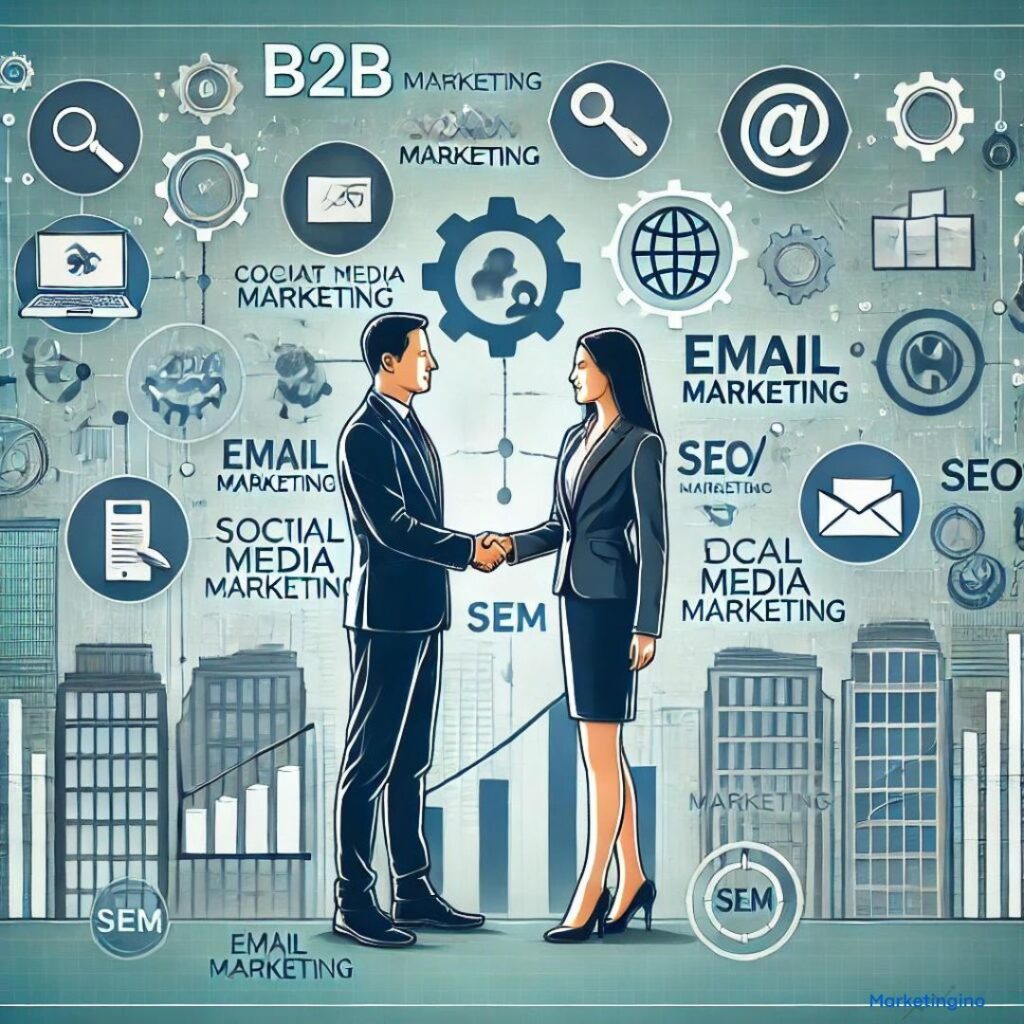In the dynamic world of commerce, Business-to-Business (B2B) marketing plays a pivotal role in fostering relationships between enterprises. Unlike Business-to-Consumer (B2C) marketing, which targets individual consumers, B2B marketing is focused on promoting products or services to other businesses. This article delves into the essence of B2B marketing, its importance, key strategies, and best practices for achieving success.
Understanding B2B Marketing
B2B marketing involves the process of selling products or services from one business to another. The goal is to meet the needs of other businesses, which may include manufacturers, wholesalers, retailers, or service providers. The products and services marketed in the B2B space are often more complex and require a deeper understanding of the client’s business needs and challenges.
Importance of B2B Marketing
- Economic Growth: B2B marketing drives economic growth by facilitating trade and collaboration between businesses, leading to increased production and innovation.
- Long-Term Relationships: Effective B2B marketing helps in building long-term relationships based on trust, reliability, and mutual benefit, leading to repeat business and loyalty.
- Targeted Solutions: B2B marketing focuses on providing tailored solutions that address the specific needs of businesses, enhancing operational efficiency and productivity.
- Higher Transaction Values: B2B transactions often involve larger order values and longer sales cycles compared to B2C transactions, contributing significantly to a company’s revenue.
Key Strategies for B2B Marketing
- Understand Your Audience: Conduct thorough research to understand the target businesses’ needs, pain points, and decision-making processes. Create detailed buyer personas to tailor your marketing efforts.
- Content Marketing: Develop high-quality, informative content that addresses the challenges and interests of your target audience. Whitepapers, case studies, blogs, and webinars can position your brand as a thought leader and build trust.
- Personalized Marketing: Use personalized marketing techniques to cater to the unique needs of each business. Personalized emails, tailored proposals, and customized product demonstrations can make a significant impact.
- Account-Based Marketing (ABM): ABM is a focused approach where marketing and sales teams collaborate to target high-value accounts with personalized campaigns. This strategy is highly effective in B2B marketing due to its precision and relevance.
- Social Media Marketing: Leverage professional social media platforms like LinkedIn to connect with decision-makers, share valuable content, and build your brand’s authority.
- SEO and SEM: Optimize your website for search engines to attract organic traffic. Additionally, invest in search engine marketing (SEM) to target specific keywords and drive relevant traffic to your site.
- Email Marketing: Implement email marketing campaigns to nurture leads, share industry insights, and promote your products or services. Segment your email list to ensure targeted messaging.
- Influencer Partnerships: Collaborate with industry influencers who can advocate for your brand and reach a broader audience. Their endorsement can add credibility and trust to your offerings.
Best Practices for B2B Marketing
- Focus on Value Proposition: Clearly communicate the value proposition of your products or services. Highlight how they solve specific business problems and contribute to the client’s success.
- Data-Driven Decisions: Use data analytics to track the performance of your marketing efforts. Analyze metrics such as conversion rates, engagement levels, and customer feedback to refine your strategies.
- Strong Branding: Build a strong brand identity that resonates with your target audience. Consistent branding across all channels fosters recognition and trust.
- Customer Education: Educate your customers about your products or services through detailed guides, tutorials, and training sessions. An informed customer is more likely to make a purchase decision.
- Responsive Customer Support: Provide exceptional customer support to address any queries or concerns promptly. Excellent support enhances customer satisfaction and loyalty.
- Continuous Improvement: Continuously evaluate and improve your marketing strategies based on feedback and performance data. Stay updated with industry trends and adapt your approach accordingly.
B2B marketing is a critical component of modern commerce, enabling businesses to connect, collaborate, and thrive. By understanding the unique dynamics of B2B transactions and implementing effective marketing strategies, businesses can build strong relationships, provide tailored solutions, and achieve long-term success. In a competitive landscape, focusing on value, personalization, and continuous improvement are key to standing out and driving growth in the B2B market.




